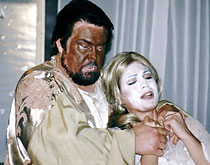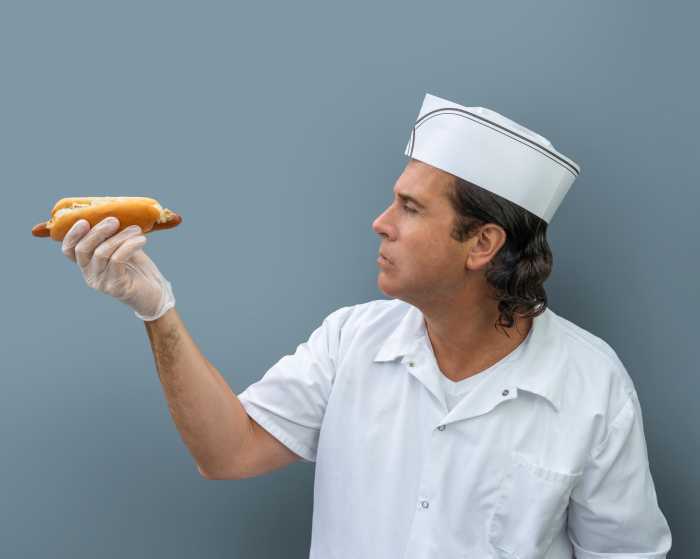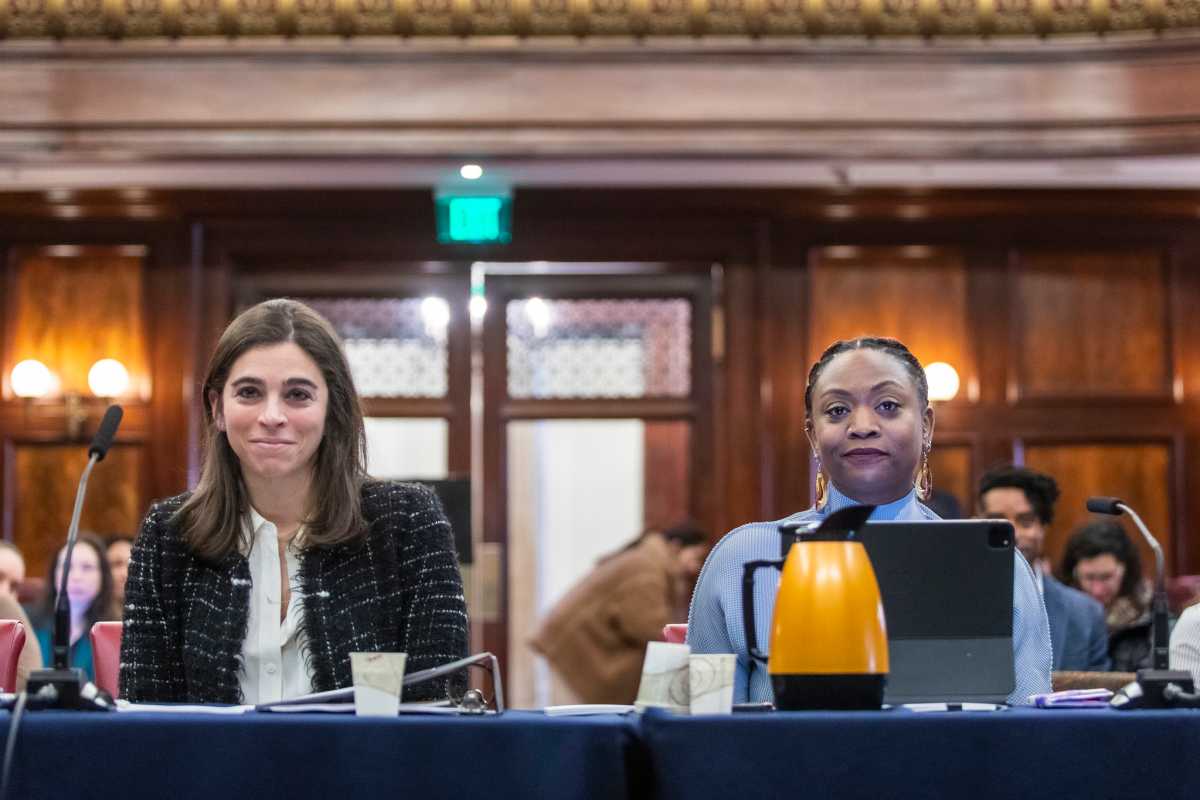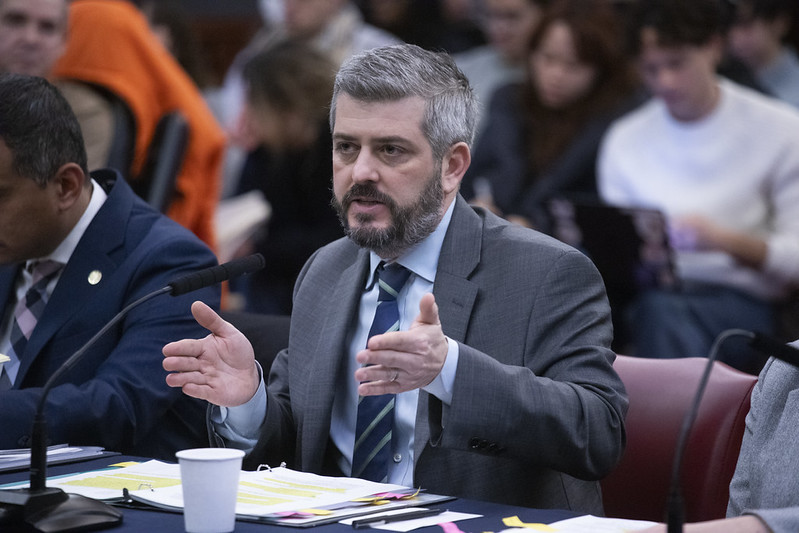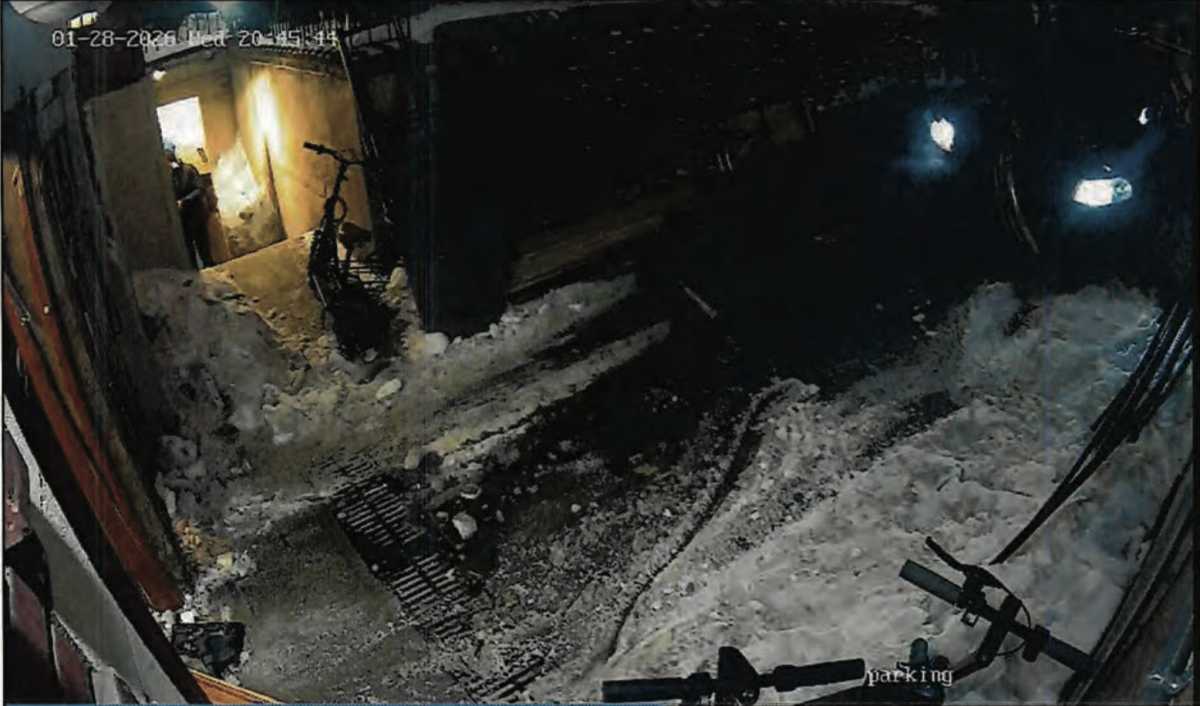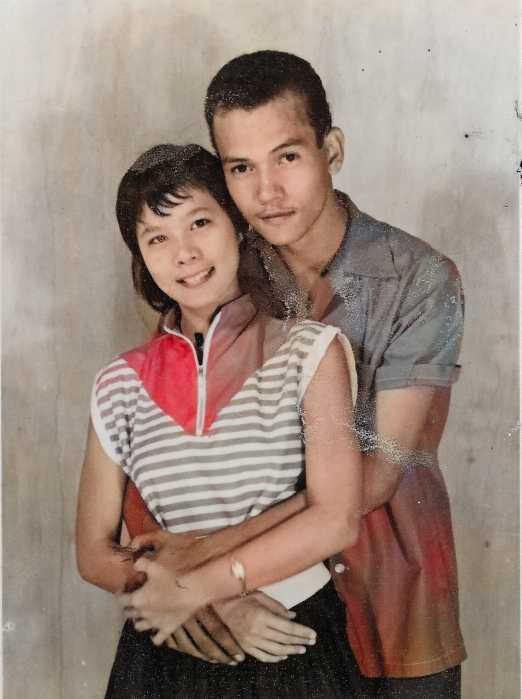Giuseppe Verdi retired from the operatic
stage after composing "Aida" in 1871. When he "unretired"
16 years later, it was with an extremely powerful version of
Shakespeare’s tragedy "Othello," which is often considered
even more dramatically effective than the original play.
Verdi’s "Otello" not only contains overwhelming drama
and tragedy in its musical score, but it also contains a trio
of incredibly difficult roles for any singer to attack onstage:
the jealous Moor, Otello; his innocent wife Desdemona; and the
evil Iago, whose conniving leads to Otello killing Desdemona
and himself.
Usually, "Otello" is produced at the Metropolitan Opera
because they have the resources to do it right: hire the best
singers, design the most elaborate production. So when an enterprising
company like Dyker Heights’ own Regina Opera announces they will
attempt it June 4, 5, 11 and 12, there had better be a good reason.
Regina’s principal conductor Jose Alejandro Guzman has one.
"Why now? Because we have the singers. The talent we have
forced us to put it on, and that’s very rare," he said recently
in an exclusive interview with GO Brooklyn. "Our company
has been in existence for 30-some years and this is only our
third production of ’Otello.’
"That’s our situation: we love the opera but it pushes us
to the absolute limit of singing, orchestral playing and production,"
he continues. "It’s definitely the hardest thing we do."
That forces the Regina Opera staff to do things differently than
usual when they prepare an opera.
"Only ’Falstaff’ [Verdi’s final opera, from 1893] is harder
for orchestra and soloists, so we are having an extra week of
rehearsals," Guzman admits. "We have to do that with
a show of this length [over three hours] and difficulty.
"Our director, Linda Lehr – who’s brilliant, by the way
– has staged a very important fight scene in the first act,"
he explains. "On our small stage, that setup can be kind
of dangerous, so she hired a special fight director [Robb Hunter]
at her own expense – someone who has worked with us before –
and he has trained all the performers in how to use the weapons
and do that in a manner that is safe but as realistic as reasonably
possible for performers who are not dramatic actors."
As mentioned earlier, "Otello" contains three fiendishly
tough parts for the lead singers.
"Everybody knows Otello’s part is viciously difficult, but
Iago’s no walk in the park either," Guzman says. "Dramatically,
the story is carried by Iago – he has to play the good friend
who’s really stabbing Otello in the back, and he does have to
hold back his venom, except when he does his famous ’Credo’ [an
aria inserted into the opera to explain his malevolence, something
never done by Shakespeare in the original].
"The actual role of Otello is not the kind you just grab
out of the sky," Guzman continues. "The first two times
we did ’Otello’ we had one tenor who we knew could sing the role,
but we couldn’t find anyone else who was close," referring
to Regina’s standard practice of having two singers each sing
two performances of each opera. "But this is one of those
times where we have two of them." They are Paul Pitts (June
4 and 12) and Alejandro Olmedo (June 5 and 11).
The conductor adds: "We also have two good Iagos [Alex Britton,
June 4 and 12; Richard Hobson, June 5 and 11], and one of our
Desdemonas has done the opera before [Carol Welker, June 5 and
11]. But what really surprised us was Michelle Serrano Moritz
[June 4 and 12], who came and auditioned and knocked our socks
off!"
Then there are the enormous demands Verdi asks of the orchestra,
a challenge Guzman and his musicians are looking forward to.
"We approach it with trepidation but also with a lot of
love because it’s an incredible piece of music," he says.
"In the opening scene, for example, Verdi wrote the music
as if people were watching a ship in the middle of a storm trying
to get safely into port, and it’s a major problem because [the
singing is] spread out among various groups of chorus members,
with each section making no sense individually until it’s all
put together.
"The orchestra is very important in this opera. It’s a musically
difficult thing to do, to learn your part of the score, because
you have to see how it all fits together: then you have a shot
at getting it right!" he laughs.
Regina Opera will have another chance at getting Verdi "right"
next season, when they put on another of his classic works: "Un
Ballo en Maschera."
Guzman has a ready explanation: "We already have a singer
for the big, big tenor part.
"Now we have another problem: finding a soprano."
He pauses, then matter-of-factly adds: "We’ll find someone."
Regina Opera presents "Otello"
on June 4 and 11 at 7 pm and June 5 and 12 at 4 pm, at Regina
Hall, on the corner of 12th Avenue and 65th Street in Dyker Heights.
Tickets are $15; $10 students, seniors and children. For more
information, call (718) 232-3555 or visit www.reginaopera.org
on the Web.


